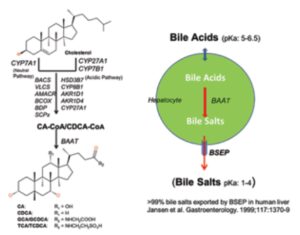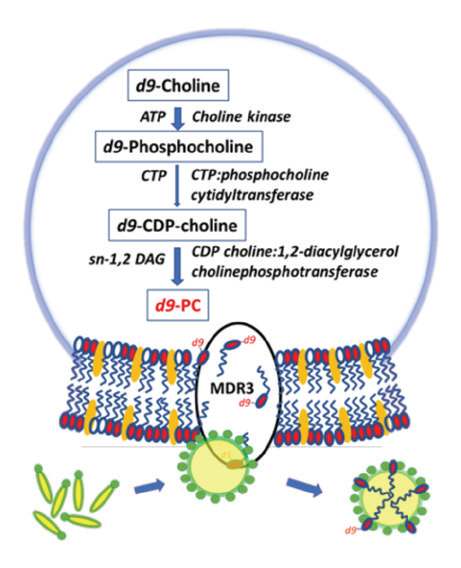Drug Transporter Services
At Frontage, we have extensive experience in drug transporter research. We offer comprehensive transporter services to support projects from discovery to development including screening, and full characterization of both uptake and efflux transporters
We Provide Innovative Solutions to Better Understand the Implication of Transporters in Drug-Induced Liver Injury (DILI)
Hepatic transporters help facilitate bile production by exporting bile salts and phosphatidylcholine (PC) from hepatocytes. In humans, inhibition of bile salt export protein (BSEP, ABCB11) and/or multidrug resistance protein 3 (MDR3, ABCB4) transporters can lead to potentially serious DILI.
Drug candidates can be screened for inhibition of BSEP and/or MDR3 to assess DILI risk.
BSEPcyte® and MDR3cyte® assays detect the potential of drug candidates to inhibit BSEP and MDR3, respectively. Both approaches utilize a hepatocyte suspension platform, which offers several advantages over other in vitro techniques:
• Hepatocytes are more physiologically relevant compared to vesicles and transfected cell lines
• In situ metabolism capability is present in hepatocytes
• Suspension studies save cell culturing time and allows quicker data generation
• Assay is accurate, robust, reproducible, and customizable
• Assay allows for cross species comparison
• Specific LC-MS/MS determination of exported bile salts
BSEPcyte®
BSEP is responsible for biliary secretion of bile salts, which is the primary
driving force for enterohepatic recirculation of bile salts and maintaining
bile flow. Inhibition of BSEP by a diverse range of drugs or therapeutic
agents is associated with DILI. At Frontage, we have developed a novel
assay, BSEPcyte®, that accurately measures BSEP inhibition.
BSEPcyte® is protected by patent US 9,772,325
MDR3cyte®
MDR3 is primarily expressed in the canalicular membrane of hepatocytes and is responsible for the biliary secretion of PC. PC combined with bile salts forms mixed micelles in bile that solubilize cholesterol and prevent highly concentrated bile salts from damaging biliary canaliculi
epithelial cells. Mutations in the human MDR3 gene are associated with progressive familial intrahepatic cholestasis, primary biliary cirrhosis, cholangiocarcinoma, and DILI. The novel MDR3cyte® assay platform at Frontage can provide accurate assessment of MDR3 inhibition by drug candidates and new chemical entities.
MDR3cyte® is protected by patent US 10,280,401





